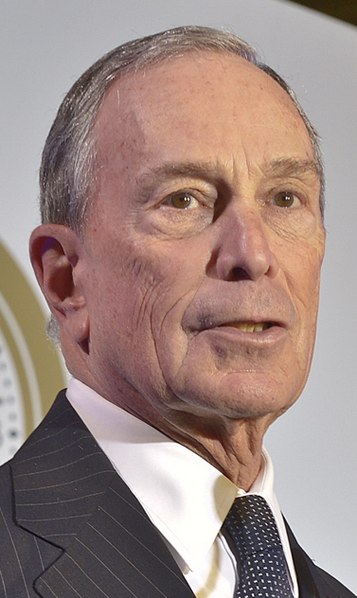 Earlier this month, Michael Bloomberg announced a $1.8 billion donation to his alma mater of Johns Hopkins University (JHU) to officially make the university “need-blind” forever. The largest donation to an individual college in history, the funds will also support other policies to make the campus more affordable for low- and middle-income families.
Earlier this month, Michael Bloomberg announced a $1.8 billion donation to his alma mater of Johns Hopkins University (JHU) to officially make the university “need-blind” forever. The largest donation to an individual college in history, the funds will also support other policies to make the campus more affordable for low- and middle-income families.
Internet and social media erupted with reactions, ranging from excited to skeptical to angry. Bellwarians, including two JHU alumni, took to Salesforce Chatter, our internal social media and collaboration tool, to weigh in. As a place that champions ideological diversity and doesn’t take organizational positions, Bellwether encourages staff to share — and to disagree. (More broadly, by maintaining an environment where divergent perspectives are freely expressed, we are able to generate creative solutions to our clients’ problems without falling into pre-baked camps or agendas. It’s something we’re proud of.)
Here are a few quick takes from across the Bellwether team:
Starr Aaron, executive & business systems assistant:
I am pleased to see these efforts. When I was at Hopkins, it was not known as particularly generous with financial aid. Some of the skepticism I’ve witnessed is from classmates who wonder if the money will reach those who need it. Others wonder if Bloomberg is running for President (maybe he is, but he’s been generous a long time). Some are smirking while they remember the time he gave a relatively small amount to “upgrade” all the walkways on campus to brick paths and how the university hopped right to it.
The current tuition is eye-poppingly high — I’ve already warned my own children that if they feel Hopkins-bound, well, good luck with that!
Bonnie O’Keefe, associate partner:
I think the skepticism and anger come from two places. One, a frustration that so many public and private institutions depend on the largesse of billionaires to fulfill what should be essential parts of their mission. Second, the idea that so much money is going to an elite institution where a billionaire has a personal connection — an institution that doesn’t serve the most at-risk students and could operate a lot more equitably with the resources it already has. (Full disclosure: I went to Hopkins for grad school and my husband worked there for several years).
All things being equal, I agree with Michael Bloomberg that alumni should direct donations to financial aid. Especially at highly selective and expensive schools, this seems much more urgent than rec centers or fancy buildings. And Bloomberg has done plenty in education outside JHU, so I don’t think he could be credibly accused of focusing only on his own alma mater. The backlash seems more symbolic of where elite colleges and billionaire philanthropy sit today than anything specifically bad about this particular donation.
Cara Jackson, associate partner:
Students who gain admission to JHU are probably going to succeed in life regardless of which college they choose to attend. And if Bloomberg wanted to target resources to help low-income students access higher education, he’d spend the money at a community college or cover the living expenses of low-income students attending public universities. My (admittedly skeptical) take is that this mainly benefits JHU…which is not to say that Bloomberg wasn’t well-intentioned.
Hailly Korman, senior associate partner:
I think it’s complex and I don’t disagree with anything that folks have raised so far, but it also makes me think about how Bloomberg got so much money in the first place. If we look under the hood, what are the links between the policies and systems that support that kind of wealth accumulation and the things that make low-income families low-income to begin with?